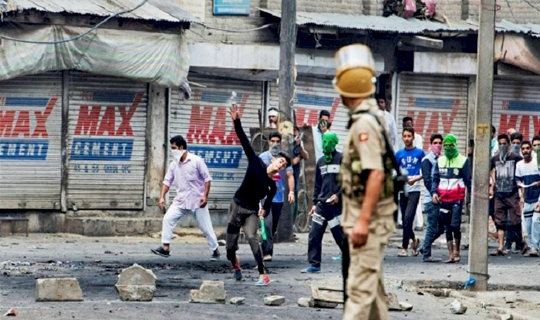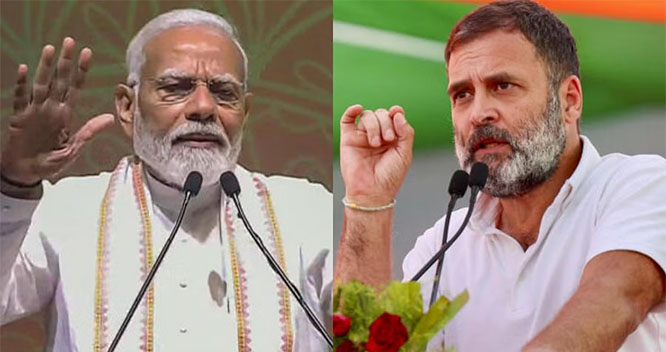Srinagar, Apr 18: The Union Home Ministry on Monday asked the security forces to use non-penetrative plastic bullets in place of pellet guns to tackle stone-pelters and violent mobs during protests in Jammu and Kashmir.

However, the non-lethal pellet guns would continue to be in use as an alternative.
The plastic bullets are non-penetrative and can be fired from INSAS rifles.
Citing official sources, PTI on Monday reported that thousands of plastic bullets have already been dispatched to the Kashmir Valley for their use by enforcement agencies.
Security forces often face violent protests and stone pelting mobs, especially during stiff resistance from the locals, when they are engaged in gunfight with militants, who at times manage to escape with the help of the crowd.
So far, security forces are using PAVA shells and pellet guns, the last option in the non-lethal category before the use of assault rifles, to control the mobs.
PAVA (Pelargonic Acid Vanillyl Amide) is a chilli-based ammunition, which is less lethal and immobilises the target temporarily.
Other less-lethal weapons used include dye marker grenade with irritant which causes sensory trouble to the target once fired. It leaves a dye mark on the troublemakers for easy identification.
An new entrant to the arsenal of non-lethal weapons is a grenade packed with scientifically prepared spicy jelly, which on exploding, causes irritation in the eyes.
Oloeoresin, a semi-solid extract in a solution, mixed with spicy gel, could be put in the grenade casings to tackle rioting mobs, sources said.
The Supreme Court had last month asked the Centre to consider effective means other than the use of pellet guns to quell stone pelting mobs in the state.
The apex court also expressed concern over injuries suffered by minors involved in protests in the Valley and asked the government what action has been taken by it against their parents.
It had asked Attorney General Mukul Rohatgi to file a detailed reply on what alternate effective steps could be taken to deal with such situation of agitating mobs in Jammu and Kashmir.
On December 14 last year, the apex court had said pellet guns should not be used "indiscriminately" for controlling street protests in Jammu and Kashmir and be resorted to only after "proper application of mind" by the authorities.
A bench headed by the then Chief Justice T S Thakur had issued notices to the Centre and the Jammu and Kashmir government while seeking their replies on a plea alleging "excessive" use of pellet guns in the state.
The apex court had also sought the assistance of Attorney General on the issue and asked him to submit a copy of the report submitted by the Expert Committee constituted for exploring other alternatives to pellet guns.
The Opposition National Conference has been criticizing the Mehbooba Mufti-led government over the handling of students' protests in the Valley.
"I hope @MehboobaMufti has thought through the implications of mass student protests across the valley. This is a deeply worrying situation (sic)," the former Jammu and Kashmir chief minister wrote on his Twitter handle.
"Why could all colleges/universities not have been closed for a few days after the Pulwama clashes? Is @MehboobaMufti not alert to situation? (sic)," he wrote in another tweet after college students across the Valley took to the streets.
The students were protesting against the alleged high-handedness of security forces while dealing with a similar protest at the Pulwama degree college on Saturday.
Scores of students were injured in the resulting clashes over the weekend.







Comments
Add new comment